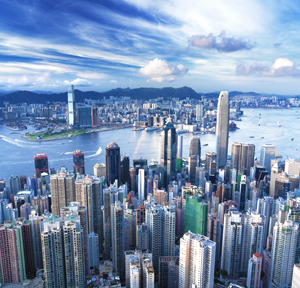Real Estate
Hong Kong’s Not Quite So Rich List

The total wealth of Hong Kong’s richest individuals declined by an average of 7 per cent to $151 billion in 2011, according to Forbes, as the city-state’s real estate market comes under increasing pressure from volatility.
The total wealth of Hong Kong’s richest
individuals declined by an average of 7 per cent to $151 billion
in 2011 from the year before, with
the greatest losses sustained by the city-state’s real estate
magnates, although they are
still top of the list, according to US magazine
Forbes.
Maintaining his number one spot despite losing 8 per cent of his
assets, is property developer Li
Ka-Shing. Li has a net worth of $22 billion. In second place is
Lee Shau
Kee, chairman of Henderson Land, with a wallet of $17 billion. He
pushed the Kwok family, owners of Sun Hung Kai Properties,
into
third place after their net worth slumped by nearly a quarter to
$15.4 billion.
The biggest riser this year was Cheng
Yu-tung, whose wealth soared two thirds from $9 billion to $15
billion,
following the $2 billion initial public offering last month of
his jewelry
company Chow Tai Fook. This offset a whopping 50 per cent plunge
in the value
of his flagship property arm, New World Development, according to
Forbes. He is
now fourth on the list.
Coming in at number five is yet another
real estate developer, Joseph Lau. Although his flagship company
Chinese
Estates has dropped in value, his net worth is up after Forbes
re-valued some
of his assets to put him at $6.5 billion.
Many developers in China and Hong Kong have
been caught up in the global real estate slow-down which has
wiped up to a quarter of
the value of property in some areas. Spooked by the economic
slowdown,
investors have been loathe to invest in property in recent months
and sales have been lacklustre. Those with a large China
footprint have also been heavily exposed to policy
and pricing changes of the Chinese government.
Hong Kong-based property companies meanwhile, have caught a chill from exposure to the Western economies. Hong's Kong's open economy makes it sensitive to turbulence in global growth and investment flows. Even before the financial market turmoil of August, the Hong Kong economy was already showing signs of strain from a weakening global economy. Gross domestic product contracted by 0.4 per cent in the second quarter over the previous three months, and grew just 0.1 per cent in the third quarter, mainly weighed by a slow-down in trade.
This may continue in the Year of the Dragon, according to analysts at UK private bank Coutts. Norman Villamin, chief investment officer of Coutts in Asia, said in a report published yesterday: "Potential swings in investment flows will lead to large fluctuations in Hong Kong asset prices. Strong investment flows into Hong Kong in recent years have been driven by foreign investors looking for exposure to strong Chinese growth, and from mainland Chinese investors looking to diversify away from their domestic holdings. However, between November 2010 and August 2011, some $36bn flowed out of Hong Kong as concerns of a hard-landing for Chinese growth escalated. On-going European sovereign debt stress and global risk aversion may well lead to further outflows, putting pressure on equity markets."
Read the full list here.